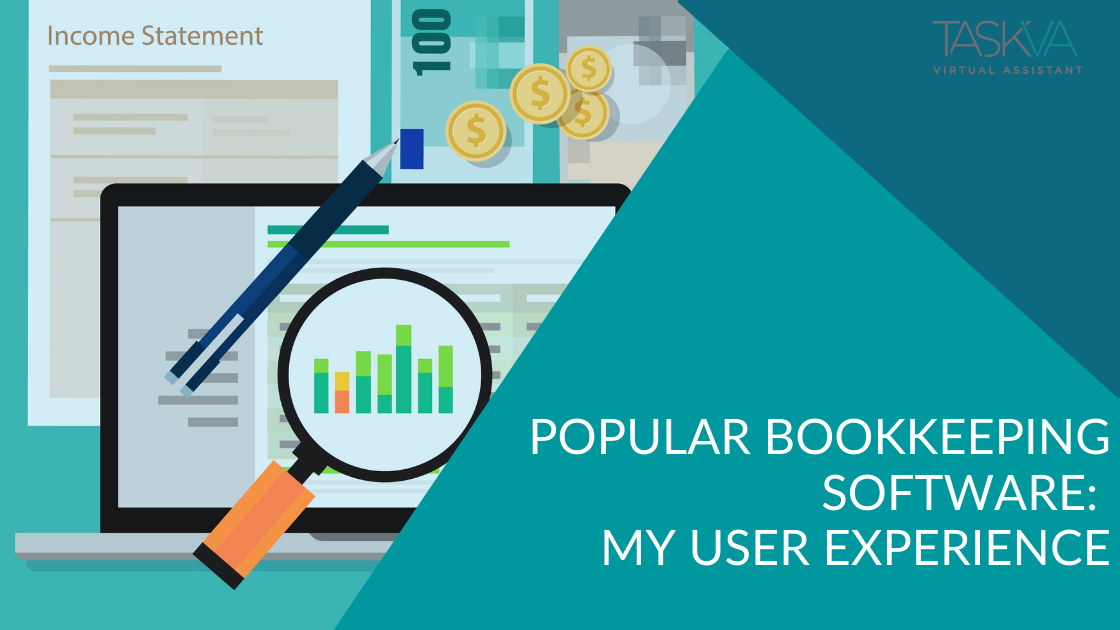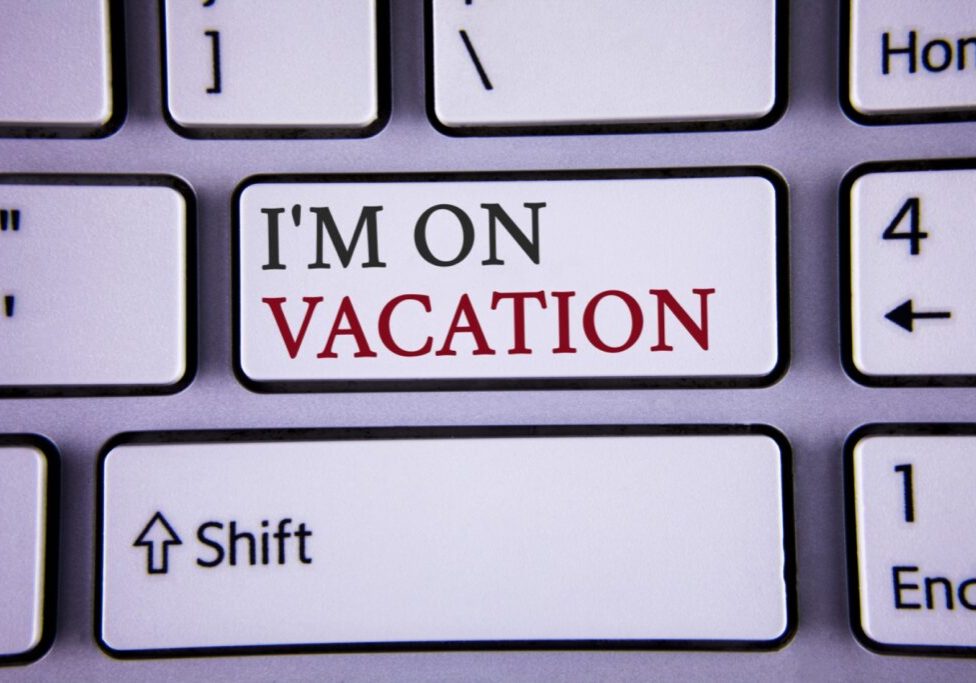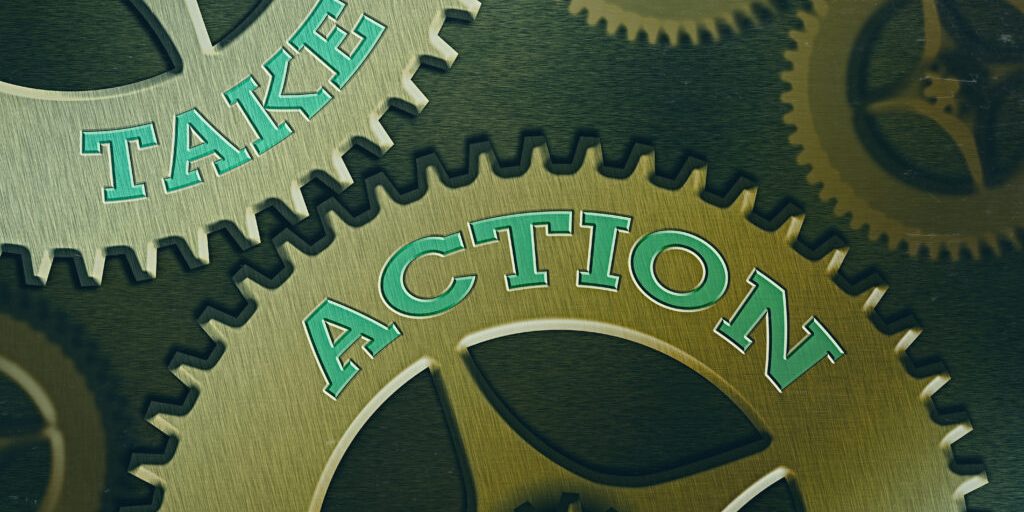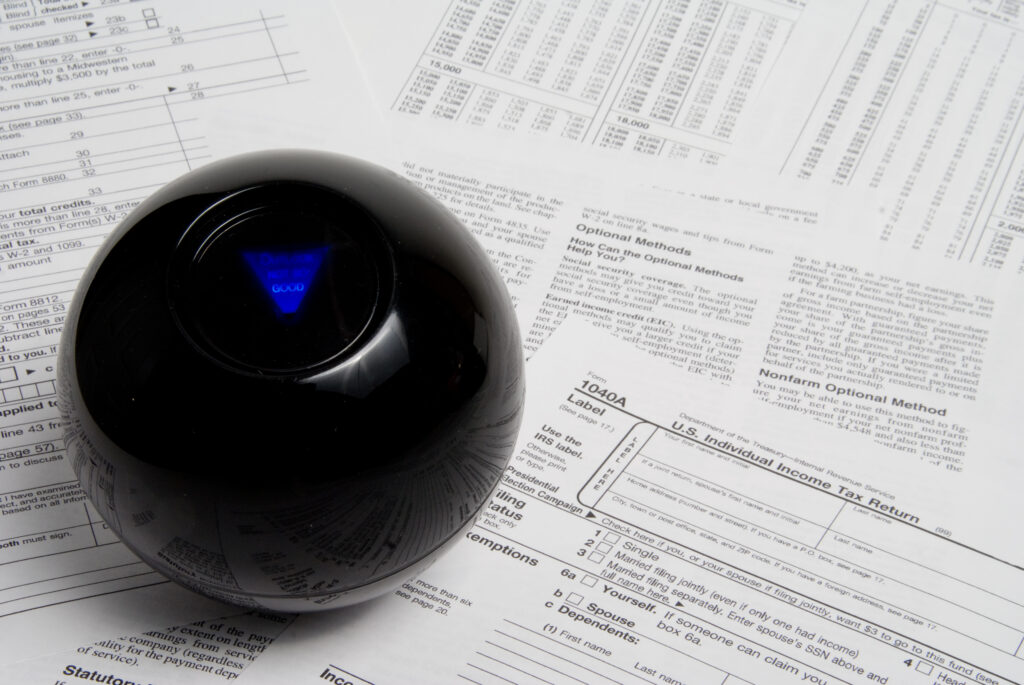Popular Bookkeeping Software: My User Experience

Popular Bookkeeping Software: My User Experience

Popular Bookkeeping Software: My User Experience Read More »


Popular Bookkeeping Software: My User Experience Read More »


Some of the benefits of personalized marketing are:
➳ Create a more familiar connection between you and your customers by providing them with content that is relevant to their needs.
➳Provide a better experience for your customers because they get what they want when they want it.
➳Boost customer retention because customers feel like their interactions with the company seem more personal, more important.
➳Keeps your customers interested in your product by providing them with exclusive offers, discounts, and deals just for them.
Our jobs as marketers are to understand how the customer wants to buy and help them do so.
-Bryan Eisenberg
One way to really wow your top clients is with a private, recorded, personalized video message. You can do this to promote something, to say thank you, or just to say hello or happy birthday. Videos are a hot trend in marketing today, and a personalized video takes you over the top!
Good marketing makes the company look smart.
Great marketing makes the customer feel smart.
-Joe Chernov


Do what you love and you’ll never work a day in your life.
Throughout history this quote or some version of it, has been used by many. Could this truly be the real secret to success? I certainly do not have the answer to that, but I know that I never feel like I’m working, and I love what I do! I sometimes feel guilty, wondering, am I working hard enough? I feel too good, too happy. I no longer have that toxic stress that plagued me so much in the Corporate world. And for that, I am truly thankful!
Ask yourself “Do I love what I’m doing?” Don’t worry, no one will know the answer but you. However, if you didn’t answer “Hell Yes!” without a moment’s hesitation, it’s possible you have misplaced your sense of purpose. Read on and see if you can find that excitement you once had.
Know Your Purpose
I suspect you want to be your best possible you. How will you know who that person is and what they’re capable of unless you know your purpose?
Discovering and aligning with your calling means you identify and build on your talents. What is your passion? What do you love doing? Chances are you’re already good at it. Why not focus on your natural gifts and turn them into your greatest strengths?
Know Your Priorities
Your priorities are shaped by your purpose. Once you know your purpose, it becomes easier to achieve your goals. This clarity means that saying no to some things and a hearty yes to others becomes more natural, and you’ll get ahead much faster.
Balance It Out
Once you’re comfortable with your purpose, you will find some of the stress and anxiety ease up. Those little things that added up to big things, no longer seem as important. You don’t have to work 24/7. You know how important it is to stay healthy, emotionally, and physically. People living with purpose make sure to connect with the people they love, and they don’t forget about self-care.
Follow Your Passion
Knowing your passion will help you find and nurture your purpose. Passion means energy and motivation; it means being really engaged with life and focusing on getting the most out of it. A new day is full of opportunities and promise, and you’re ready to go for it!
Be Happy
This might sound a little surprising, but knowing your purpose and living it, gives you time to smell the roses. Knowing your purpose takes the anxious edge off things and allows you to feel grateful for where you are now, and to be excited for the future.
Live in the Now
Perhaps the best part of knowing your purpose is that you relish every moment. There’s no room in your life for regret because everything you do is part of the big adventure. Challenges and setbacks become easier to ride out because you’re not letting failure define you. Being plugged into the present allows you to feel the abundance that’s already in your life.
Finding your purpose, the reason why you are doing what you do, can turn everything around. It can make your life and work immediately more meaningful, giving you a reason to bound out of bed in the morning instead of grouching your way to the coffee pot.
And living with that purpose helps to make the tough times easier to deal with, and the good times even better.
Are You Living With Purpose? Read More »


“Our goals can only be reached through a vehicle of a plan, in which we must fervently believe, and upon which we must vigorously act. There is no other route to success.” – Pablo Picasso
A Simple Guide to Creating a Realistic Business Plan Read More »


3 Tips to Avoid Small Team Burnout Read More »


Do you gain a sense of comfort when working? Do you feel guilty or restless if you are not busy doing something? I personally can not, not, be doing something. I always have 10-15 or more computer windows and Chrome tabs open so I can easily and quickly switch between tasks rather than take any downtime.
Workaholics will put the job before and above all else. Holidays, family time, it doesn't matter. A workaholic spends little-to-no time connecting with others and will always arrange their schedules so work comes first.
As I mentioned above, a workaholic has very little time for socializing. Some may even stress out from the guilt of doing something for themselves. A workaholic must make themselves completely available and indispensable to their job and have oftentimes been accused of being a martyr.
A workaholic cannot admit they have a problem, or they might not even realize it. Working long hours, "to the bone", is acceptable in our society and quite often expected.
Oftentimes a workaholic doesn't even like their job, but they have a need to remain busy rather than have nothing to do.
Could You Be A Workaholic? Read More »


Every business must figure out how they plan to keep track of income and expenses and set up benchmarks for planning purposes. In Organizational Efficiency: The Anatomy of your Business, I showed you how automating your business helps free up your valuable time to do more money-making activities. The poster child for automation is business finances. Think about it, most of your business finance tasks are recurring and rarely change, making it perfect for automation! The tools that exist today, such as Quickbooks and Xero, are easy to use, inexpensive, and work great. Today, most bookkeeping software, even Go Daddy’s version, will automatically book your purchases and income for you and categorize the expense, saving you hours! It doesn’t get much easier than that!
Below are some finance tasks you can easily automate:
Send recurring invoices automatically based on the criteria you set up. You can also set up auto-reminders for invoices that might need a little tweaking before they go out.
What’s more, when your client clicks the invoice to pay, the software automatically records the payment.
If you have employees, then you know how timely payroll can be! Investing in payroll software can save you time and money.
Depending on the size of your staff or how many contractors you have, having an automated system will help ensure your people are paid on time, and letting them self-manage their pay helps save you time. Look at your bookkeeping software to determine if there are add-ons to help automate this or try using SurePayRoll.
Set up automatic payments through your bank or credit card company, so you don’t have to think about them every month. Another plus, automatic payments prevent late fees!
Use receipt scanning apps like Wave to take a picture of your records and receipts so that it’s always there when you need it. Your accountant will thank you!!
Managing expenses, especially when you’re away from your office, is easy today with software like Zoho Expense and fylehq.com that help you collect receipts, appropriately book the expense, and so forth. Even your existing bookkeeping software may have an option.
The truth is, if you don’t invest and save on a regular basis, you won’t do it. Set up automatic transfers with your bank to send money to your investments and savings accounts, whether personal or business finances.
Automating your finances helps you avoid making the same steps over and over again. There is no reason to repeat tasks today when there is software available to do it for you. You can save hours each day by implementing these financial automation tips and tools.
Download our free Organizational Efficiency Workbook and start taking control of your time!
Organizational Efficiency: Automate Your Business Finances Read More »


The first thing to think about when you seek to make your days more manageable and more effective are the parts of your small business, the anatomy. What parts of your business are essential to your success? You'll need to look at your situation for each business to determine it, but this can get you started.
While all businesses share the same fundamental parts, some businesses, especially home solopreneurs, may place importance on different functions depending on their goals. But these potential essential parts of your small business bear consideration so that you can create a solid automation plan.
I will show you how you can create organizational efficiency in all areas of your business, no matter what your business type. This is not about starting a new business but rather how to achieve operational excellence in your business by minimizing waste and maximizing values. Make sure you download the accompanying Workbook and follow along to achieve organizational efficiency.
Send download link to:
Knowing how you have structured your business is vital to determine before you start your automation plans. For example, the way you run and automate an online store where people purchase products will be somewhat different from someone who offers courses or one-on-one personal services.
When you understand the core business, you will know what you sell, who you are selling it to, where your buyers are, and how to find them. You will also see how you're going to distribute the product or serve the customer. Additionally, you know how you stand out from the competition, and you use that to your advantage by differentiating yourself in the marketplace.
So, what is your business type?
Do you have an online store where you sell any type of product, physical or digital? There are many automation tips you can use for online stores.
Do you offer virtual services? Most businesses moved to virtual during the pandemic and continue to stay virtual due to convenience and cost savings. Services offered could range from administrative, one-on-one coaching, social media management, online business management, and so forth. As a service-based business, you will want to organize your business and market yourself differently from an online store where you don't speak to the customers directly yourself and sell products directly.
You may also offer only virtual support and consulting without providing direct service. For example, you may coach your clients to create a sales page, set up a freebie, or set up a discovery call, but you don't do it yourself; you advise them on what to do, and the client with their team does it. This is an entirely different business structure than a business that does the services directly or delivers the product directly.
Suppose you offer classes and "how-to" information to your customers via courses, classes, and content. If you have a business that provides classes, either self-paced or teacher-led, this is a training business. A training business sometimes needs more personal input and engagement than a storefront that sells the complete self-paced course.
There are numerous opportunities for automation in each of these business structures. Get out your workbook and write it out:
The more you can document how your business works, the easier it will be to find ways to automate and outsource.
Workbook Task: write out your business structure Send download link to:
Organizational Efficiency Workbook
As a small business owner, you probably think that you have a lot of jobs to do. Some people like to describe the job of a business owner as one that wears many hats. However, your main job description as a business owner is to plan and organize the daily operations of your business.
On any given day, you may be responsible for:
All these jobs represent your primary function as a business owner, analyzing the performance, whether it is automation or human, to minimize risk. You do not need to do the tasks yourself physically. Remember, your job as a business owner is that of risk management. Realistically, you may have to wear a lot of hats at first, doing all the tasks; the trick is, figuring out when it's time to let go.
Finding and setting up automation in your business is one of your roles as a business owner. By doing so, you will reduce risks associated with your business because you are going to ensure those tasks get done in a timely fashion by someone (or something) who knows what they're doing.
The more you can automate or outsource, the faster your business will grow because you're going to free up your time so you can discover new opportunities for your business.
As a business owner, you have a lot on your plate. But, to figure out how to automate your business, you first need to know, in detail, what you do all day long. This exercise will aid you in determining which tasks can be automated, which can be outsourced, and even whether it's something you should be doing at all.
You will have daily tasks, weekly tasks, monthly tasks, and even quarterly and yearly tasks in every business. The best thing to do is get out a calendar and enter the items you know you have to do.
For example, you have to pay quarterly taxes, and you have to balance your books at the end of the month. You must buy a business license each October or January depending on your location and the rules and laws in your area. What you know has to be done should be entered into your calendar and block off the approximate time it will take you to do it.
But what about the daily things you do that generate your income. When it comes to generating revenue, it's essential to specify which actions you are doing that generate income and which activities you're doing that support generating income. Go through the steps you take in your day and write down what you're doing, step by step.
Coaches' example of a typical day:
Of course, this one day is not representative of all the money-making tasks this coach does, nor is it a complete picture of what happens in the business overall. Still, it does give you a great idea about where to start automating and even outsourcing. Once it's written out and you visually see all that you do, it becomes easier to know where you can improve your process.
Workbook task: Take the time to write out every task you do or need to do each day. Send download link to:
Organizational Efficiency Workbook
Many of us believe that being successful means being busy. The truth is, being busy does not mean that you are productive, and many times, quite the opposite. Did you know that multitasking makes you LESS efficient and thereby unproductive? You can also be busy doing the wrong things. The truth is successful people know that getting more done with less implies that the impact you make is more significant than your effort. Now that's a success!
So how do you do more with less? First, you need to Understand your key objectives. What is the point of doing a particular task? Does this task impact any of your critical business objectives or the objective of the one task?
If it's not a front-burner task or something that only you can do, put it on the list for automation and outsourcing.
Once you clean up your list and down to the tasks you need to do, it's time to get organized. Add them to your calendar and create your schedules realistically. For example, you know a task takes two hours and that you need some setup time, so plan three hours. You also want to batch like tasks together. The purpose of this is the fewer steps you can take, the better. For example, if you need to do bookkeeping, save all your booking entries to do one day a week instead of doing it daily.
Next, you want to make sure you are using the right tools. If a tool exists to help streamline your business and eliminate busy work, you need it. There are so many tools out there, developed because of a need, by business owners just like you. I've listed a few in the workbook to help get you started. You can also check out our Resources page to see what we use and recommend.
Now put it into action! Remember when I said turn off all distractions? That goes the same for your tasks. Set up your workspace to eliminate distractions and interruptions. Turn off notifications, your phone, the TV, or anything that can take your mind off what you are doing. Set a timer for each task and track how you are spending it; you will be surprised by the insight you will gain here! Time tracking also helps you gain a better understanding of how long your tasks take.
Remember that being organized in your business is part of what a business owner does. Business owners reduce risk in their business by organizing, planning, and generating new ideas that create new opportunities.
Workbook task: look at each task and prioritize by the impact and effectiveness Send download link to:
Organizational Efficiency Workbook
Being productive is an essential element in any business owner's life. Business owners are busy and need to use every moment as efficiently and effectively as possible. Most business owners continually research ideas that will boost their productivity, but the truth is the ultimate boost in productivity will come from a combination of automation and outsourcing.
Now that you have taken the time to write out your business goals, understand your core business, and audited your internal processes, it's time to apply that knowledge to help you with automating your systems or outsourcing.
When you start to automate and outsource tasks in your business as you develop each process, you will notice that bottlenecks are a thing of the past. Because the truth is, in most small businesses, especially those run by people starting them from home with no business experience, the bottleneck is the business owner.
When you want to outsource or automate something, you will need to write down the process to visualize every step, including the impact of the actions. Through these business processes, you will create a situation where you improve every single function you have.
Sometimes lack of skill causes a roadblock. Sometimes you may lack desire or energy because everything becomes so overwhelming. But whatever the reason, if you are engaged in organizing and planning and focused on automating and outsourcing, ensuring that others are responsible for their tasks, you are going to get more done.
Even if you do not have a skill, you can find it in software or find it in an individual or company. Simply put, a sole proprietor or a small business can perform like a big business due to increased capabilities.
When you work with software, fewer mistakes will happen, provided you set it up correctly. If you don't know how to do something, you're going to make mistakes as you learn. But if you hire an expert, they're going to make fewer mistakes. If you use technology and set it up correctly, there will be no mistakes.
The truth is, hiring experts or using automation software can reduce your errors and mistakes so much that the cost will produce a fantastic ROI (return on investment).
There has never been a better time to be a small business owner! There is an endless resource of technology to implement in your automation plan and plenty of people to hire in your outsourcing plan. Figure out what you want to do, set your goals for doing it, and then follow through.
The work you produce will be much better when you work with technology and contractors to see your vision come to reality.
Focusing on your primary business, which is the core of your business's existence, is the biggest reason of all to automate and outsource. While you may need to do things in your business as a job, once you reach specific benchmarks, you should automate those tasks that you can and outsource the others to spend time on business planning and idea generation, which is the key to business growth.
When you have more time to judge how your business is performing, and you've developed each process to be the most efficient possible, you're going to have more doors open for you when you need them.
Workbook task: develop your processes Send download link to:
Organizational Efficiency Workbook
There are numerous things you can automate in your business. Some things you may have already thought about or started, such as email marketing. But others you may not have thought of yet, such as auto file generation, event registration, data collecting, file creation, document sharing, and form filling.
From time tracking to expense management, anything that happens repeatedly is ripe for automation, and think of the many saved hours in your workday and work year. Those are hours you can use to create even more fantastic products and solutions for your ideal audience.
If you can document the steps you do for a task, you can likely automate a lot of it. From using macros within your documentation to implementing new automation tech, there is probably a way to do it.
The best way to determine what you want to automate is to track what you do each day, week, month, and year. Review the daily process you recorded in your workbook. For tasks that repeat, do a little research about how other people automate that task. You may be shocked to learn how simple automating your business is. Automation is not nearly as expensive or complicated as you may think.
As you learn more about business automation, it is essential to understand another way to automate your business, which is by hiring someone else to do the work for you. No automation plan is complete without an outsourcing plan.
Hiring experts to deliver work for you on your behalf is called outsourcing. If you cannot automate it, you can likely get someone else to do it for you. If you outsource to a contractor, they are not employees because you can only make requirements on the deliverables but not on how they use their time creating and producing the deliverables.
A few common areas to outsource are legal work, finance, technology needs, marketing, graphic design, customer care, administrative tasks, and writing. Most of these tasks are cumbersome and overwhelming, and small business owners can save a boatload of time, stress, and money by outsourcing.
As a business owner, you should make it your goal to outsource or automate almost every task in your business. When you outsource more, you free up your time to focus on what you do best.
Beginning today, start tracking what you do every single day. Don't make any changes yet; simply follow what you're doing. Pay attention to the things that you do that are repetitive. Also, note the tasks you would rather not be doing or spend a lot of time figuring out how to do.
Make a list of these tasks, and then look at the software and tools you are already using to find out if you can add features or integrations with other solutions to get more out of what you're doing.
Most of all, remember that productivity does not mean that you have to be busy all the time. The opposite is true. Being busy is only an indicator of movement, and all movement isn't impactful. Test your results. Measure your efforts so that you can improve as you go. Before you know it, you'll have a smooth-running, mostly automated business and finally have control over your most important resource, your time.
Download our free Organizational Efficiency Workbook and start taking control of your time!
Send download link to:
Organizational Efficiency: The Anatomy of Your Business Read More »


Being an efficient decision-maker can often make a difference in missed opportunities. You have to be decisive, and often you have to make quick decisions, but you want to be sure you are making the best choice. So how do you make quicker and better decisions? How do you become more accurate and effective at making decisions when it counts?
You have to be decisive. Making important decisions in less time means more power and control over your life. It also means that you will have the opportunity to gain the trust of others. Being able to make important decisions will enhance your business and personal life.
Start with making small decisions in a timely fashion to help train your brain to think through questions more quickly. You will be surprised at how quickly our brains can be conditioned. Follow these five tips to help put your decision-making process in the fast lane.
Your S.M.A.R.T. goals will play a vital part in your decision-making process. Knowing the objectives of the decision and knowing your mission will help make the decision-making process simple.
Write it out, brainstorm, and discuss. Is it your role to solve this problem? Do you have the tools needed? It is vital that your decision, any decision, is within your mission.
Seek out wise counsel. Really. If you are surrounded by more experienced professionals who have done what you are about to do, ask questions and inform yourself. Do needed research. Don’t let pride or proving that you have it “all under control” blind you to great resources all around you.
Don’t overthink - just start. Make a plan. An imperfect, real plan. Start doing the work that is deciding and solving. Take note of the effects and response to your action. This way, you can adjust if needed.
…it’s ok to fail, but fail fast and move on.
Be humble - adjust early if needed. Don’t run the train off the track because you are unwilling to admit that you made a mistake. If your choice was wrong, own up to it in a professional way and make things right to the best of your ability. It’s better to win the fight after a change of tactics than to get knocked out by your own ego and pride.
Decision-making does not have to be tedious and stressful. An important part of the process is to know what you truly have power over, to control only what YOU can control. If it’s not your decision to make, stay out of the control room. Zero in only on what you have the ability to decide on. This means staying focused and being able to take action without becoming overwhelmed by the details.
With the right attitude, planning, and strategy, you can become a faster, more efficient, and competent decision-maker. This is a great tool for the corporate world and everyday life.
Five Fast Ways to Make Quicker and Better Decisions Read More »


Do you rush to file your tax returns as soon as possible? Do you gather all your documentation and stand at the IRS virtual door on opening day? As with everything, filing early has its pros and cons, but is filing early really a good idea?? Like many things in life, the answer is, “It depends.”
Not every situation is conducive to filing early. Filing for an extension and putting it off as long as possible may make more sense for some filers. Read on to learn the good, the bad, and sometimes the downright ugly of filing early and why waiting might be best.
Your security. This is probably the best reason to file early and therefore makes #1 on my list. Filing your taxes early can protect you from would-be cyber thieves.
The IRS will only allow one return per social security number, and it’s first-come, first-served. If your social security number has been hijacked, you will get a rejection notice from the IRS.
At this point, you will need to file a claim and start the process of proving your identity, and you will have to show proof that you weren’t involved in committing fraud against the IRS. Most of these cases do not get resolved until after tax season. Protect yourself now! Get ahead of the cybercrooks by protecting your computer and devices. Enroll in Cybersecurity for the Remote Office and discover how easy it is to secure your network.
Receive your refund sooner. Obviously, It’s your money! Who doesn’t want their money as quickly as possible?
If you’re owed a tax refund, then the earlier you file, the faster the refund. This is especially true if you’re going to mail your return (yes, 30% still use the mail). As you can probably imagine, the IRS is less busy in February than in April.
Be free of the mental clutter. It has to get done one way or the other. It makes sense to get it over with and free yourself from it hanging over your head. Life is easier if you don’t procrastinate. Just do it.
The post office is less crowded. Remember what I said about 30% still mail their returns? That’s over 62 million of the adult US population trying to use the post office at roughly the same time. Many people don’t want to file electronically for a variety of reasons, one being security! Avoid the crowds and file early.
You won’t be late. I have a knack for stating the obvious. How can you be late if you file early?
Many of us plan to do things with the best of intentions, then life happens, and they usually end up waiting until the last minute.
I don't have to point out how risky that can be. What if you find out that you’re missing some key piece of information? What if you get sick? There are too many variables in life to put off something like filing your tax return until the last minute.
You’ll be more accurate. Starting your return early will keep you from rushing through it, thus ensuring that you have everything you need and that it’s done correctly. Remember, slow and steady wins the race. If you’re not rushed for time, you’ll be more likely to avoid errors.
Why pay early? You want to file early when you expect a refund, but why would you want to pay early? It's your money!
If you owe the IRS, you’ll want to keep it as long as you can, maybe even make a little more in interest. It makes sense to keep your money as long as you can.
You might end up having to file a corrected return later. W-2s and 1099s are due February 1; however, It’s not uncommon to get them late or for providers to come back a month after sending your documentation and say, “Oops, we made a mistake.” Taking a little extra time to file your return will give you that much more time to gather your documents and ensure that you don’t have to do it more than once.
Early filers have a greater chance of being audited. If you file early, are you more likely to get audited? I’m not sure if we can ever answer that definitively. Still, it is believed that if the vast majority of the population is filing at the last minute, the odds of being selected are minimal due to the sheer number of tax returns the IRS agents must handle. Truth or fiction? No one knows, but why take a chance.
Consider the above factors when deciding to file your tax return. If you’re in a situation that puts you at risk of being audited, and you don’t need your refund or copies of your return right away, it can be wise to wait.
On the other hand, if your return is simple, you’re due a refund, and you need the refund now; there’s no time like the present to file your return.
Assess your situation and make the smart choice for your circumstances.
Pros and Cons of Filing Your Taxes Early Read More »